Throughout the PQAR summer program students will be given a series of lectures from NYU/NYC faculty and researchers, on subjects related to Responsible Conduct of Research (RCR), Professional Development, Site visits and general aging-related topics. The biographies of this summer's featured speakers are listed below.
FLS
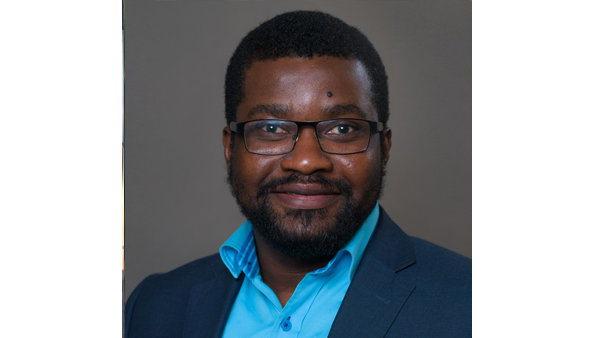
Prince M. Amegbor, PhD
Assistant Professor, Global & Environmental Health | NYU School of Global Public Health
Dr. Amegbor is an Assistant Professor at NYU School of Global Public Health, Global & Environmental Health Program, with a cross-appointment in the Department of Social and Behavioural Sciences. Previously, he served as a post-doctoral research fellow at Aarhus University and the Danish Big Data Centre for Environment and Health (BERTHA). Dr. Amegbor also was a co-task leader in two EU Horizon 2020-funded projects, ICARUS and REGREEN. As a guest researcher at Statistics Denmark, Dr. Amegbor collaborates on novel spatial methods to model disease risk distribution using individual-level data. His research focuses on the impact of environmental exposures, specifically climate change and ambient air pollution, on the health of vulnerable populations. With a multidisciplinary approach and expertise in health geography, he uncovers social and geo-spatial inequalities in health through the utilization of diverse methodologies and big data analysis
Twitter: @Pamegbor
LinkedIn
Dr. Amegbor presented to students on Wednesday, June 21.
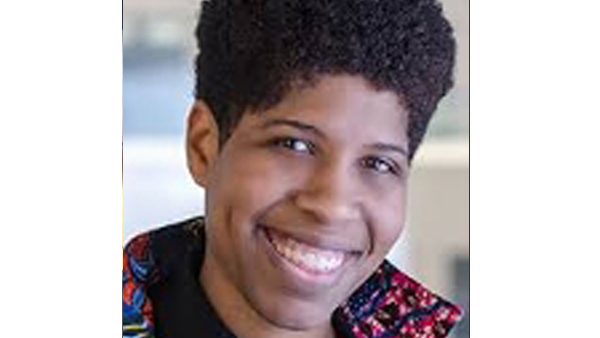
Emma K Benn, DrPH
Associate Professor, Center for Biostatistics and Department of Population Health Science and Policy |
Icahn School of Medicine at Mount Sinai (ISMMS)
Dr. Emma K. T. Benn is an Associate Professor in the Center for Biostatistics and Department of Population Health Science and Policy and the Founding Director of the Center for Scientific Diversity at the Icahn School of Medicine at Mount Sinai. Dr. Benn enjoys contributing her biostatistical expertise to health equity research and to research investigating best practices for recruiting, retaining, and advancing underrepresented trainees and faculty in the biomedical research workforce. Dr. Benn serves as the PI of the Clinical Research Education in Genome Science Short Course. Dr. Benn holds the prestigious honors of American Statistical Association Fellow, Association for Women in Mathematics Fellow, and being a part of the Committee of Presidents of Statistical Societies Inaugural Leadership Cohort. Dr. Benn has a BA in Chemistry (Spanish Minor) from Swarthmore College and an MPH in Sociomedical Sciences and DrPH in Biostatistics from Columbia University Mailman School of Public Health.
Twitter: @EKTBenn
Dr. Benn presented to students on Wednesday, July 12.
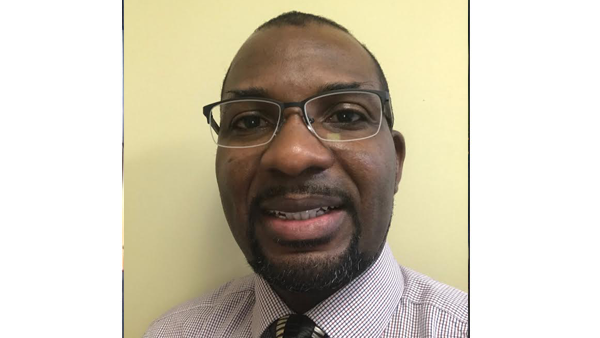
Omonigho Michael Bubu MD PhD MPH
Assistant Professor and Physician-Scientist | NYU Grossman School of Medicine (NYUSoM)
Dr. Bubu is an Assistant Professor and physician scientist at NYU Grossman School of Medicine (NYUSoM), in the Departments of Psychiatry, Population Health and Neurology, with a programmatic research focus on sleep, aging and Alzheimer’s disease (AD). Dr. Bubu has graduate, internship, and fellowship-level clinical and research training in neurology, neuro-epidemiology and public health. His research examines how age-related and age dependent sleep changes, and vascular risk, impact cognitive decline and AD risk, and how they drive AD related disparities.
Dr. Bubu presented to students on Thursday, July 6.
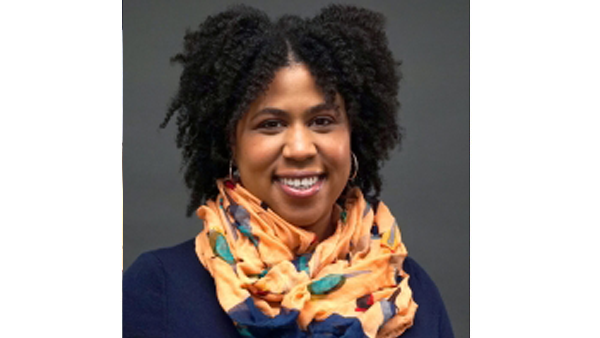
Stephanie Cook, PhD
Assistant Professor of Social and Behavioral Sciences, Assistant Professor of Biostatistics | NYU School of Global Public Health
Dr. Stephanie Cook’s overarching research focus is to understand how structural- and individual-level minority stressors contribute to mental health, physical health, and health behaviors across the life span. Further, she seeks to understand how features of close relationships can exacerbate or buffer the negative effects of minority stress on health. Her work primarily focuses on young adults transitioning to adulthood who are at the intersection of racial/ethnic and sexual orientation status. In addition, much of her current work examines the links between minority stress (i.e., daily experiences of discrimination) and biological markers of stress (e.g. cortisol and c-reactive protein).
Dr. Cook’s substantive methodological and statistical focus is on the development and application of longitudinal study designs (i.e., intensive longitudinal designs) for determining the ways in which dynamic changes in features of minority stress (e.g., daily and momentary discrimination events) are associated with changes in risk behaviors and physical health (e.g., sexual risk and substance use, pre-clinical cardiovascular disease, and biological stress) among racial/ethnic and/or sexual minority young adults.
Dr. Cook is the Director of the Attachment and Health Disparities Research Lab (AHDL) which is currently made up of about 20 undergraduate, graduate, and postdoctoral fellows. She developed an integrated theory of adult attachment (the Integrated Attachment and Sexual Minority Stress Model [IASMS]; i.e., the development, or lack, of strong socio-emotional bonds) and minority stress (i.e., social stress experienced by individuals in minority social groups) as a means to better understand and address the health needs of disadvantaged youth transitioning to adulthood. Dr. Cook and her team’s long-term goal is to continue creating, implementing, and refining sustainable interventions to reduce the influence of stress on health utilizing innovative methodologies.
Website | LinkedIn | Twitter: @DrStephanieCook
Dr. Cook presented to students on Thursday, June 15.
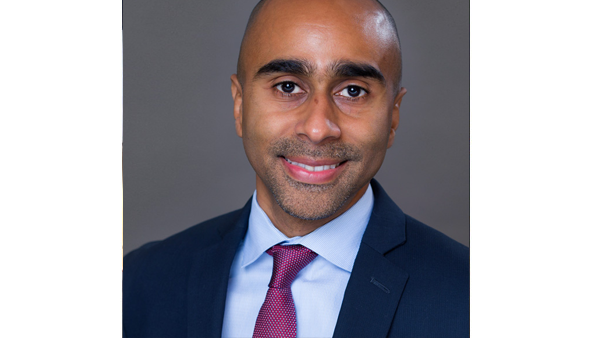
Adolfo G. Cuevas, PhD
Assistant Professor, Department of Social and Behavioral Sciences | NYU School of Global Public Health
Adolfo G. Cuevas, PhD is an Assistant Professor in GPH’s Department of Social and Behavioral Sciences. He employs epidemiological, psychological and biological approaches to investigate the effects of discrimination and other psychosocial determinants of health and health inequities. As a community psychologist, he uses population-level datasets and advanced statistical methods to understand how psychosocial determinants “get under the skin” and increase the risk of aging-related diseases.
For his research work on race, racism and health, Dr. Cuevas was selected one of the National Minority Quality Forum's 40 Under 40 Leaders in Minority Health in 2018. He is also a recipient of the Diversity Scholar Award by the Nutrition Obesity Research Center at Harvard University. Prior to joining NYU, he was the Gerald R. Gill Assistant Professor of Race, Culture and Society at Tufts University.
Dr. Cuevas’ work has been published in scientific journals such as the Proceedings of the National Academy of Sciences and the American Journal of Public Health, and he has been featured in HuffPost and NPR's Code Switch. While at Tufts he directed a multidisciplinary team of researchers investigating the obesogenic effects of discrimination across the life course.
Dr. Cuevas received both his MS and his PhD in applied psychology at Portland State University, with a concentration in community psychology and research methods. He earned a BA in psychology at City College of New York, and received additional training as a cancer prevention postdoctoral fellow at the Harvard T.H. Chan School of Public Health.
Dr. Cuevas presented to students on Thursday, July 13.
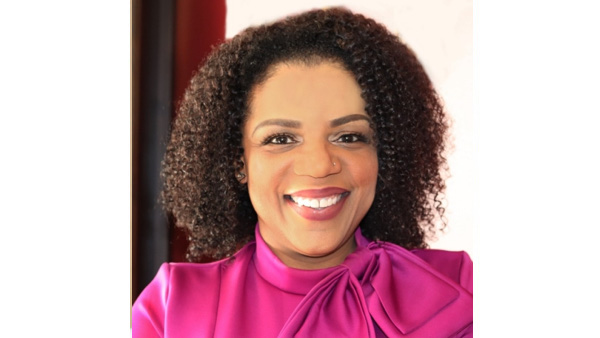
Debra Furr-Holden, PhD
Dean | NYU School of Global Public Health
Dr. Furr-Holden is an epidemiologist and public health professional with expertise in health disparities and health equity research, policy and practice, drug and alcohol dependence epidemiology, psychiatric epidemiology, and prevention science, Professor Furr-Holden comes to NYU from Michigan State University, where she is the C.S. Mott Endowed Professor of Public Health, associate dean for Public Health Integration, and the director of the NIH-funded Flint Center for Health Equity Solutions at MSU’s College of Human Medicine.
Dr. Furr-Holden presented to students on Monday, June 26.
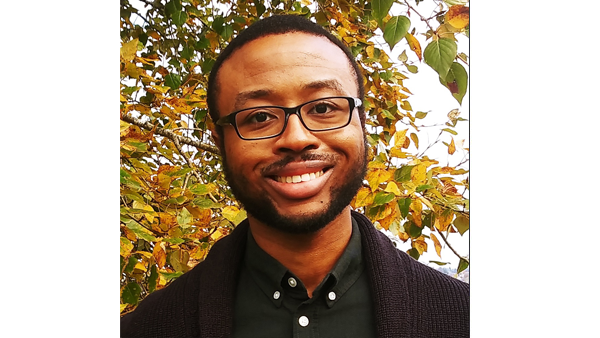
Aaron Hudson, PhD
Professor of Biostatistics, Vaccine, and Infectious Disease Division | Fred Hutchinson Cancer Center
I am an assistant professor of biostatistics in the Vaccine and Infectious Disease Division at the Fred Hutchinson Cancer Center. Prior to joining Fred Hutch, I was a postdoctoral fellow in the Division of Biostatistics in the University of California, Berkeley School of Public Health, where I worked with Maya Petersen and Mark van der Laan. I completed my PhD in the University of Washington Department of Biostatistics, working under Ali Shojaie.
My research focuses on high-dimensional and nonparametric statistical inference, with broad applications in public health and medicine. I have recent and ongoing work on methodology for nonparametric inference on function-valued statistical parameters that arise commonly in causal inference problems and prediction problems, and I also have current interest in the development and application of methodology for analyzing data from vaccine efficacy trials. In addition, I have experience working on problems related to treatment effect heterogeneity, analysis of high-dimensional biological networks, and the design of randomized trials with adaptive randomization schemes.
Dr. Hudson presented to students on Monday, July 17.
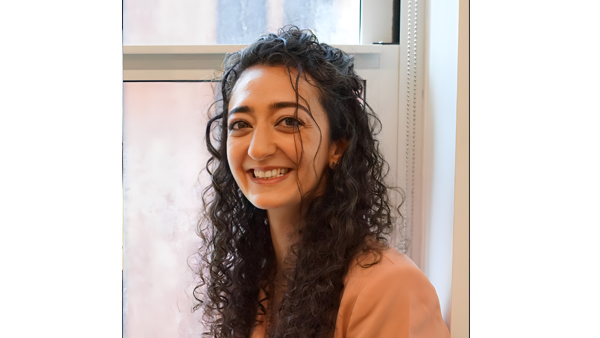
Saba Rouhani, PhD
Assistant Professor of Epidemiology | NYU School of Global Public Health
Saba Rouhani is an Assistant Professor in the Department of Epidemiology. Her research is situated at the intersection of the contemporary overdose and policing crises, with a particular focus on examining impacts of changing drug laws and enforcement practices on health equity and racial justice. She is currently leading qualitative and quantitative studies to characterize emerging drug decriminalization policies in the United States and model their impacts on equity in criminal legal involvement and health outcomes.
Dr. Rouhani presented to students on Thursday, June 29.
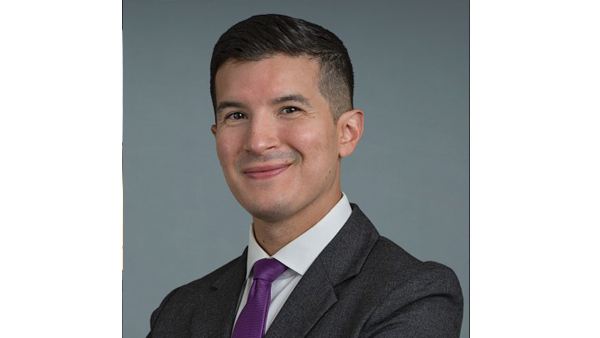
Joel Salinas, MD, MBA, MSc, FAAN
Clinical Assistant Professor, Neurology | NYU Langone Health Center for Cognitive Neurology
Dr. Salinas is a Clinical Assistant Professor of Neurology in the NYU Langone Health Center for Cognitive Neurology and the Chief Medical Officer for Isaac Health—provider of telehealth clinical services for patients and families struggling to access care for Alzheimer’s disease and related dementias. As a behavioral neurologist, he specializes in practical clinical approaches to brain health and has conducted NIH/NIA–funded clinical research with the Framingham Study to better understand psychosocial determinants of brain health and harness these insights to preserve healthy neurocognitive function at the population level. His work has been highlighted in the New York Times, Wall Street Journal, and Forbes. Prior to NYU, he was Assistant Professor in Neurology at Harvard Medical School and the Mass General Department of Neurology’s division of Cognitive-Behavioral Neurology, the Mass General TeleNeurology Program, and was Clinical Director of the Henry and Allison McCance Center for Brain Health.
Twitter: @joelsalinasmd
Dr. Salinas presented to students on Friday, June 23.
RCR Series
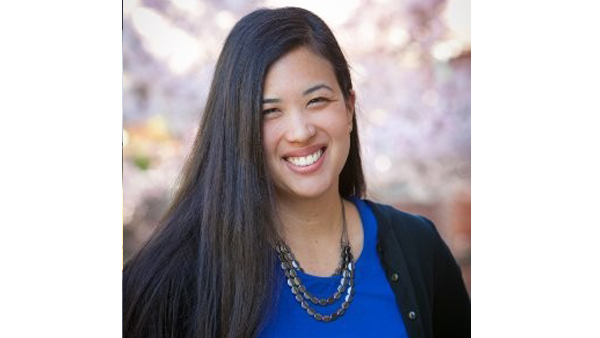
Emy Cardoza
Director of Global Diversity Education and Faculty Engagement | NYU GIDBEA
Emy Cardoza is the director of global diversity education and faculty engagement. She provides strategic direction for global diversity education and training. She also develops and facilitates global inclusion, diversity, belonging, equity, and access (GIDBEA)-focused curriculum for students, staff, and faculty across the global network. Prior to this role, Emy served as the associate dean for student life at Barnard College and the associate director for multicultural student affairs at the University of Chicago. She brings over a decade of experience in diversity education and curriculum design, focusing on a holistic approach to student learning and identity development.
Emy received her BA in Religious Studies from Rollins College and has also earned a Master of Divinity from the University of Chicago and a Master of Education from Loyola University Chicago. She is currently pursuing a PhD in Philosophy and Education at Teachers College, Columbia University.
Safe and Ethical Research Environments
The Safe and Ethical Research Environments will be a new and third installment in our RCR series. We have invited Emy Cardoza, Director of Global Diversity Education and Faculty Engagement to discuss topics related to microaggression, sense of belonging, explicit/ implicit bias and many more. As the academic spaces continue to expand to include researchers with diverse identities, so does the need to identify and cultivate inclusive environments. Thus this session will detail the ways in which the students must be reflective in their research and the labs/ teams they will work on during the summer and future spaces.
Emy Cardoza presented to students on Tuesday, June 27.
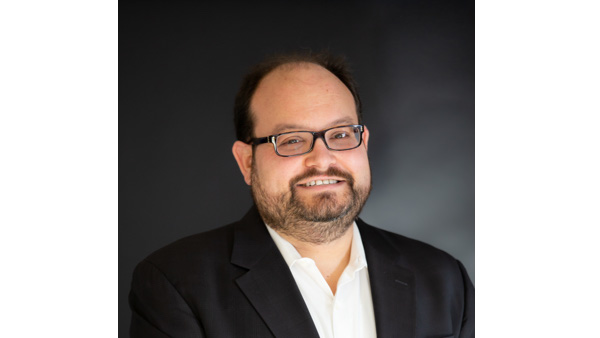
Ivan Oransky, MD
Editor in Chief | Spectrum
Distinguished Writer in Residence | NYU Arthur Carter Journalism Institute
Co-Founder | Retraction Watch
President | Association of Health Care Journalists
Ivan Oransky, MD, is co-founder of Retraction Watch, editor in chief of Spectrum, and distinguished writer in residence at New York University's Arthur Carter Journalism Institute. He also serves as president of the Association of Health Care Journalists. Ivan previously was vice president of editorial at Medscape, global editorial director of MedPage Today, executive editor of Reuters Health, and held editorial positions at Scientific American and The Scientist. A 2012 TEDMED speaker, he is the recipient of the 2015 John P. McGovern Medal for excellence in biomedical communication from the American Medical Writers Association, and in 2017 was awarded an honorary doctorate in civil laws from The University of the South (Sewanee). In 2019, the judges for the John Maddox Prize, which promotes those who stand up for science in the face of hostility, gave him a commendation for his work at Retraction Watch.
Twitter: @ivanoransky and @retractionwatch
Science, Now Under Scrutiny Itself | NYTimes
Just How Historic Is the Latest Covid-19 Science Meltdown? | Wired
“Retraction Watch”
To close our series of RCR training, we have invited Dr. Ivan Oransky to present on his blog “Retraction Watch”. After a brief introduction on the creation and purpose of his blog, Dr. Oransky will review a number of scientific retractions that have taken place over the years. This session will engage students by reviewing the errors and mishaps in publishing work. The session will close with an opportunity for discussion at the end.
Dr. Oransky presented to students on Wednesday, July 12.
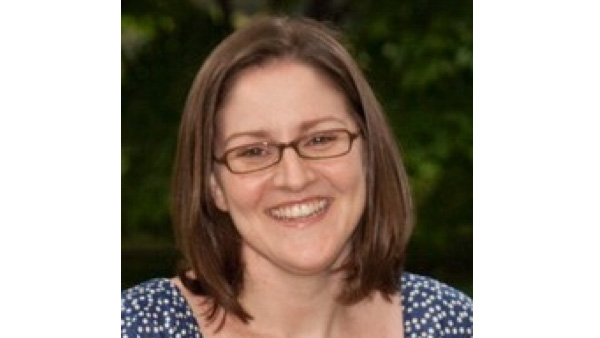
Christine Ponder, PhD
Senior Director, Research Affairs | NYU, Office of the Vice Provost for Research
Christine Ponder, PhD is the Senior Director of Research Affairs within the Office of the Vice Provost for Research at NYU. Dr. Ponder has been working with the university on post doctoral affairs for nearly ten years. During her time at NYU, she has been developed and manage numerous initiatives to support the development of doctoral and post doctoral students. As Senior Director of Research Affairs, her team supports individuals across the Washington Square campus to get science research done every day. Research affairs promotes research integrity and provides support for investigation of research misconduct when necessary. Dr. Ponder received her PhD in Genetics from Columbia University's Vagelos College of Physicians and Surgeons.
RCR at the University Level
As Senior Director of Research Affairs at the university, Dr. Christine Ponder will kickoff our Responsible Conduct of Research series. Dr. Ponder session will allow students to provide an overview of the RCR at practices at a leading research institution, such as NYU. The session will go over research integrity, misconduct, and conflict of interest. Then participants will be split into two groups, “pros” and “cons”. and will be prompted to debate on a claim. Similar to the RCR training given to the NYU community, participants will review and discuss the statements given to them, through the RCR framework. This unique version of the debate-styled training will actively engage participants.
Dr. Ponder presented to students on Thursday, June 15.
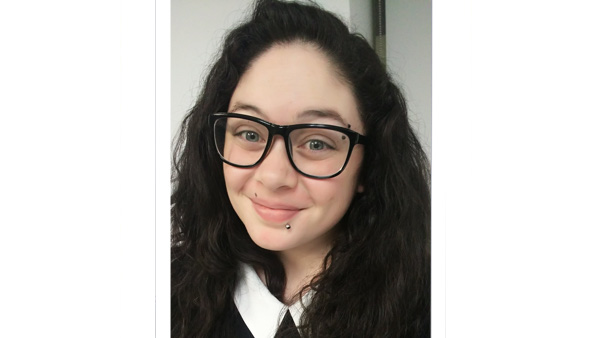
Vicky Rampin, MLIS
Librarian for Research Data Management and Reproducibility | NYU Bobst Library
Vicky Rampin is the Librarian for Research Data Management and Reproducibility, as well as the liaison librarian to data science, at New York University. Vicky supports researchers of all levels and disciplines through individual and group consultations, teaching workshops, and maintaining documentation and tools to help implement data management and reproducibility practices. Her research centers on integrating reproducible practices into different research workflows, advocating openness for all research materials, and contributing to open infrastructure.
Twitter: @VickyRampin
Data Management: Vicky Rampin and Dr. Nicholas Wolf
Vicky Rampin and Dr. Wolf will be the second lecturers in our RCR training series. Rampin and Dr. Wolf will give participants a presentation on data management, as some research projects will require work with large datasets. Additionally, as beginner-level researchers, students will be given a session on the importance of data management, data mismanagement, and the numerous systems to store and protect data for an extended period of time. The Data Management RCR training will give participants the knowledge and confidence they are working with data throughout their summer research experience.
Vicky Rampin and Dr. Nicholas Wolf presented to students on Tuesday, June 20.
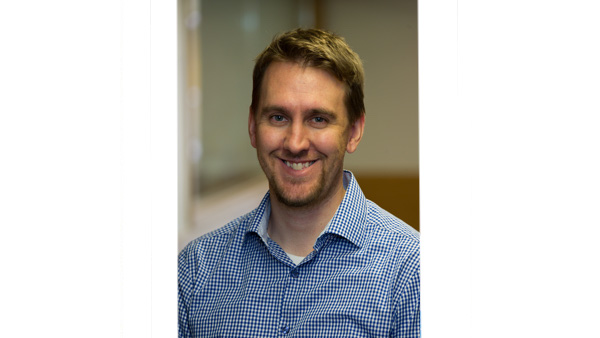
Nicholas Wolf, PhD, MSLIS
Research Data Management Librarian | NYU Bobst Library
Nicholas Wolf is a Research Data Management Librarian and Interim Co-Head of NYU Libraries' Data Services department. At Data Services Dr. Wolf supports researchers to organize, transform, preserve, and share their data at all stages of the research lifecycle. This work includes review of grant data management plans and facilitating researcher access to tools for data publish and repository selection.
Data Management: Vicky Rampin and Dr. Nicholas Wolf
Vicky Rampin and Dr. Wolf will be the second lectures in our RCR training series. Rampin and Dr. Wolf will give participants a presentation on data management, as some research projects will require work with large datasets. Additionally, as beginner-level researchers, students will be given a session on the importance of data management, data mismanagement, and the numerous systems to store and protect data for an extended period of time. The Data Management RCR training will give participants the knowledge and confidence as they are working with data throughout their summer research experience.
Vicky Rampin and Dr. Nicholas Wolf presented to students on Tuesday, June 20.
PD Series
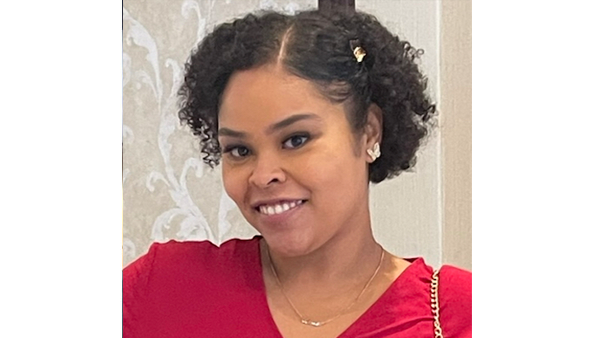
Rebeca Checo

Yang Feng, PhD
Associate Professor of Biostatistics, Doctoral Program Director for Biostatistics | NYU School of Global Public Health
Dr. Yang Feng is an Associate Professor of Biostatistics. He received his B.S. in mathematics from the University of Science and Technology of China and his Ph.D. in Operations Research from Princeton University.
Dr. Feng's research interests include machine learning with applications to public health, high-dimensional statistics, network models, nonparametric statistics, and bioinformatics. He has published in The Annals of Statistics, Journal of the American Statistical Association, Journal of the Royal Statistical Society Series B, Journal of Machine Learning Research, International Journal of Epidemiology, and Science Advances. Feng serves on the editorial boards of the Journal of Business & Economic Statistics, Statistica Sinica, Stat, and Statistical Analysis and Data Mining: The ASA Data Science Journal.
Prior to joining NYU, Feng was an Associate Professor of Statistics and an affiliated member in the Data Science Institute at Columbia University. He is an elected member of the International Statistical Institute and a recipient of the NSF CAREER award.
Dr. Feng participated in the Doctoral Programs panel discussion on Monday, July 10.
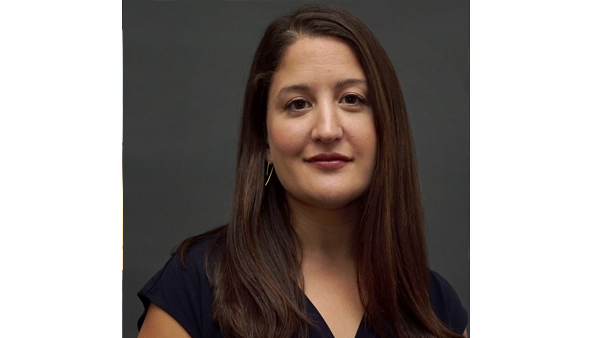
Emily Goldmann, PhD
Clinical Associate Professor of Epidemiology | NYU School of Global Public Health
Emily Goldmann was a Clinical Associate Professor in the Department of Epidemiology at the School of Global Public Health. She holds a BA in Economics from Columbia University and an MPH and PhD in Epidemiology from the University of Michigan.
Trained as a psychiatric and social epidemiologist, Dr Goldmann's research focuses on the social determinants of common mental disorders, substance use, behavioral health surveillance, and physical-mental health comorbidity. She is also interested in the development of pedagogical approaches for teaching epidemiology and public health to diverse audiences. Previous work has centered on the role of neighborhoods, socioeconomic status and social support in posttraumatic stress disorder in urban areas, as well as the mental health consequences of disasters and other potentially traumatic events.
Prior to joining NYU, Dr. Goldmann conducted health economics outcomes research on various health conditions at a consulting firm and worked as an epidemiologist at the New York City Department of Health and Mental Hygiene in the Bureau of Adult Mental Health, where she conducted behavioral health surveillance among New Yorkers. Dr. Goldmann received the NYU GPH Excellence in Public Health Faculty Award for the academic year 2016-2017.
Dr. Goldmann participated in the Doctoral Programs panel discussion on Monday, July 10.
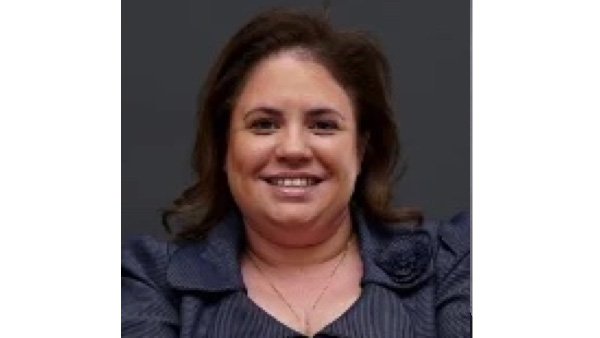
Danielle Ompad, PhD
Associate Dean for Education, Professor of Epidemiology | NYU School of Global Public Health
Dr. Danielle Ompad is an epidemiologist whose work is focused in the areas of urban health, HIV, illicit drug use, and adult access to vaccines. With respect to illicit drug use, her work has spanned the entire natural history of addiction – from initiation to cessation, with particular attention paid to risk for infectious diseases such as HIV, hepatitis B and C, and STIs. She has primarily worked with people who use heroin, crack, cocaine, and/or club drugs.
In New York City, she has been examining heroin cessation among current, former, and relapsed heroin users. Working with Alliance for Public Health and the Ukrainian Institute on Public Health Policy, she analyzes harm reduction service utilization among people who inject drugs, in order to optimize service delivery in Ukraine. Since 2013, she has served as faculty for the Fogarty-funded New York State International Training and Research Program with the goal of building research capacity in Ukraine.
Dr. Ompad’s National Institute of Allergy and Infectious Diseases-funded study aims to determine if herpes simplex 1 and 2 infections explain racial disparities in HIV incidence among a cohort of young gay, bisexual, and other men who have sex with men (YMSM). In addition, Dr. Ompad and colleagues are assessing HPV infection prevalence, persistence, and clearance among this same cohort.
Dr. Ompad participated in the Doctoral Programs panel discussion on Monday, July 10.